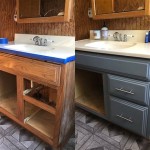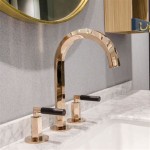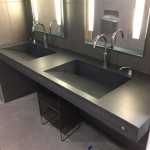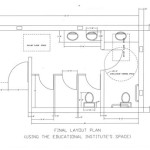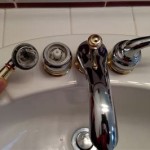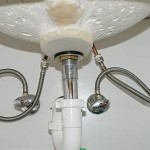Essential Aspects of Water Softeners for Bathroom Sinks
Water softeners for bathroom sinks are devices that remove dissolved minerals, such as calcium and magnesium, from water. They are an essential part of any bathroom, as they can help to prevent scale buildup on fixtures and appliances, extend the life of plumbing fixtures, and make water feel softer and smoother on the skin. When choosing a water softener for your bathroom sink, there are several essential aspects to consider, including the type of softener, the size of the unit, and the installation requirements.
Type of Softener: There are two main types of water softeners: salt-based and salt-free. Salt-based softeners use ion exchange to remove minerals from water, while salt-free softeners use a different process called template-assisted crystallization (TAC).
Size of the Unit: The size of the water softener you need will depend on the size of your bathroom and the amount of water you use. A larger unit will be able to soften more water, but it will also be more expensive.
Installation Requirements: Water softeners can be installed under the sink or in a remote location. Under-sink units are more compact and easier to install, but they may not be able to soften as much water as a remote unit.
In-depth Explanation of Essential Aspects
Water Softening Capacity: Measured in grains per gallon (gpg), it determines how much hardness the softener can remove before needing regeneration.
Flow Rate: Indicates the amount of softened water the unit can deliver per minute, ensuring adequate water flow for bathroom tasks.
Regeneration Cycle: Describes the process of restoring the softener's softening capacity, considering frequency and water usage patterns.
Type of Regeneration: Can be demand-initiated (triggered by water usage) or time-initiated (based on a set schedule), affecting efficiency and maintenance frequency.
Salt Consumption: For salt-based softeners, it indicates the amount of salt required for regeneration, impacting operating costs and environmental impact.
Bypass Valve: Allows un softened water to bypass the softener for specific applications, such as watering plants or filling an aquarium.
Warranty and Maintenance: Consider the duration and coverage of the warranty, as well as the ease of obtaining replacement parts and servicing the softener.
Conclusion
In conclusion, choosing the right water softener for your bathroom sink is an important decision. By considering the essential aspects discussed in this article, you can select a unit that will meet your needs and provide you with the benefits of soft water. Remember to consult with a qualified plumber or water treatment professional for expert advice and ensure proper installation.
Benefits Of Water Softeners For Bathrooms Soft Showers Bathroom Hard Solutions Softener Bath The Showroom

Longlasting Faucet Water Filter For Bathroom Sink Kitchen Purifier Hard Softener Relieve Dry Rough Itchy Skin Suitable Sensitive Com

Longlasting Faucet Water Filter For Bathroom Sink Kitchen Purifier Hard Softener Relieve Dry Rough Itchy Skin Suitable Sensitive Com

Longlasting Faucet Water Filter For Bathroom Sink Kitchen Purifier Hard Softener Relieve Dry Rough Itchy Skin Sensitive Com

Longlasting Faucet Water Filter For Bathroom Sink Kitchen Purifier Hard Softener Relieve Dry Rough Itchy Skin Suitable Sensitive Com

Automatic 100 Lph Kent Bathroom Water Softener For Commercial Capacity Resin Volume 5 L

Meeko Com Tap Kitchen Bathroom Filter Water Softener Purifier Pack Of 1 Mount In Buy

Longlasting Faucet Water Filter For Bathroom Sink Kitchen Purifier Hard Softener Relieve Dry Rough Itchy Skin Suitable Sensitive Com

Isoft Hard Water Softener Head Filter For Tap Shower Kitchen Sink Bathroom Sf 15 Soft Pro

The Pros And Cons Of Water Softeners Abc Blog
Related Posts
